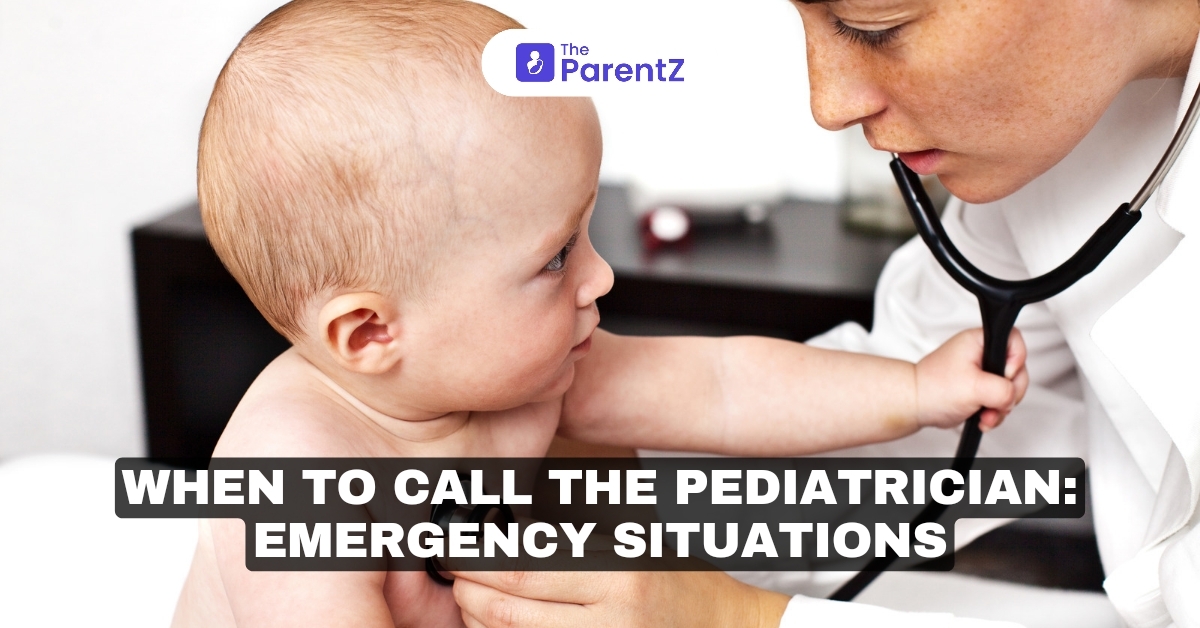Being a new parent is a whirlwind of emotions, filled with both joy and worry. As your little one adjusts to the world, you might find yourself wondering when a sniffle is just a sniffle and when it warrants a call to the pediatrician. This blog post is here to help! We'll break down some common situations and guide you on when to seek professional medical advice.
Remember, It's Always Okay to Call!
Newborn babies are especially delicate, and even minor symptoms can indicate something more serious. If you have any concerns, never hesitate to call your pediatrician. Their expertise and reassurance can be invaluable during this precious time.
Let's Talk Temperature
Fevers are a common childhood concern. Here's a quick guide:
- Newborns (under three months): If their rectal temperature is 100.4°F (38°C) or higher, you should call your pediatrician.
- Infants (3-6 months): A rectal temperature of 102.2°F (39°C) or higher warrants a call.
- Children (over six months): A fever alone isn't necessarily a cause for immediate concern. However, call your pediatrician if the fever accompanies other symptoms like fussiness, rash, vomiting, or difficulty breathing.
Dehydration
Keeping your child hydrated is crucial, especially during illnesses. Signs of dehydration include:
- Decreased urination
- Dry mouth and lips
- Sunken fontanelle (soft spot on a baby's head)
- Listlessness or fatigue
If you notice these signs, contact your pediatrician and offer fluids like breast milk, formula, or an electrolyte solution (consult your pediatrician on the appropriate one for your child's age).
Rashes
Rashes can be caused by allergies, infections, or even heat. While some rashes are harmless, others require medical attention. Here's when to call your pediatrician:
- The rash is followed by fever, vomiting, or diarrhea.
- The rash appears sudden and spreads quickly.
- The rash is painful or itchy and doesn't improve with home remedies.
Behavioral Changes
As your child grows, observe their behavior. A sudden change could indicate an underlying issue. Call your pediatrician if you notice:
- Excessive crying or fussiness that lasts for an extended period.
- Difficulty feeding or sleeping.
- Lethargy or unusual drowsiness.
- Seizures or tremors.
Tips for a Smoother Journey
- Partner with your pediatrician: Build a rapport with your child's doctor. Ask questions and express your concerns openly.
- Keep a well-baby schedule: Regular checkups are crucial for preventive care and monitoring growth and development.
- Track symptoms: Record your child's temperature, feeding habits, and any unusual symptoms. This information helps your pediatrician diagnose.
- Stay calm: It's natural to worry, but stay calm during your child's illness. A relaxed parent translates to a calmer child.
What to Avoid
- Self-diagnosing: The internet can be a great resource, but it shouldn't replace professional medical advice.
- Over-the-counter medications: Unless your pediatrician recommends, avoid giving your child over-the-counter medications.
- Waiting too long: If unsure, work on the safe side and call your pediatrician.
Remember, you're not alone! Parenthood is a learning experience, and resources are available to help you navigate your child's health. With a bit of knowledge and a trusted pediatrician by your side, you can confidently care for your little one.





Be the first one to comment on this story.